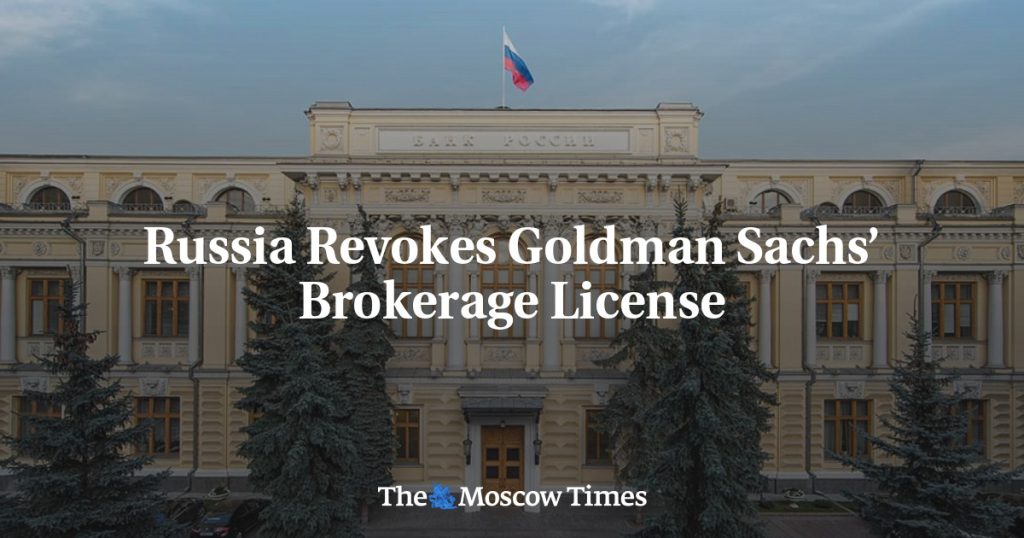Goldman Sachs, a prominent U.S. investment bank, has had its broker and dealer licenses revoked by Russia’s Central Bank in response to the country’s invasion of Ukraine. The Central Bank announced the cancellation of these licenses on July 9, following Goldman Sachs’ own application. This move came after Goldman Sachs made the decision to retain only its single banking license last fall, which does not allow for working with individual clients, and surrendered its broker and dealer licenses. The decision to scale back its presence in Russia was part of the bank’s response to the ongoing conflict in Ukraine.
The decision to wind down its Russian operations was further solidified by a Moscow court’s temporary freeze of $36 million of Goldman Sachs’ Russian assets last summer. The freeze was a result of accusations leveled by a Russian-owned bank, claiming that Goldman Sachs had failed to settle a $6.3 billion debt. Operating in Russia since 2009, Goldman Sachs was one of the first major U.S. banks to announce the reduction of its presence in the country in March 2022 after the invasion of Ukraine. Since then, the bank has been gradually decreasing its credit exposure in Russia. In 2022, Goldman Sachs’ Russian business reported a loss of 176.6 million rubles ($1.9 million), marking its first loss in five years.
In addition to the challenges faced by Goldman Sachs due to the conflict in Ukraine, the bank was also listed among 45 foreign-owned banks that President Vladimir Putin barred from selling their shares without his personal approval. This added hurdle further complicated the bank’s operations in Russia. The decision by the Central Bank to revoke Goldman Sachs’ broker and dealer licenses is another blow to the bank’s operations in the country. These actions taken by Russian authorities are part of a broader crackdown on foreign businesses, particularly in response to their stance on the conflict in Ukraine. Despite these challenges, Goldman Sachs has continued to navigate the evolving situation in Russia, reshaping its operations in response to the changing geopolitical landscape.














